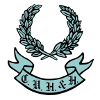BUSA 2006
By Jacob Eisler
Two fixtures comprise the heart of the Cambridge University Hare and Hounds racing season: the impassioned head-to-head duel of the Varsity Match, and the exotic adventure of the BUSA national championships. The latter meet offers glory on a national stage, but as the Hare and Hounds journeyed to the University of Stirling on February 4th for BUSA 2006, painful memories of Oxford's 5-1 victory in this year's Varsity Match series still burned. The Cantabs hoped to enjoy racing against diverse competition and, but also held hopes of vindication-as one Blues runner remarked, Cambridge would be out for blood.
Despite its Scottish location, the course itself was surprisingly tame, consisting of grassy undulating loops through the campus. A few fairly small hills added variety and demanded prudent pacing, culminating in a slight uphill gradient over the finishing stretch. Concerns the terrain would be reduced to pools of mud by rain and early races proved groundless, as the course remained dry and intact throughout the day. Combined with foggy and cold but not freezing weather, the cumulative race experience was pleasing and fairly fast (and, with surreally swift times, rather generously measured), defined by a few turns and hills, soft but stable racing surfaces, and plenty of tactical opportunities.
The meet opened with the short courses, with the men's (nominally) 4.5 kilometers race won in 11.37 by Jonathan Blackledge of Oxford. On the Cambridge side, Steve Benson (16th, 12.43) effectively combined impressive speed and keen racing discipline, and Matt Grant (32nd 13.12) recovered from ambitious participation in a collective sprint start. In the women's 3.2k, lone Cantab Tabitha Steel finished in 15.48.
The following men's long (11.3k) race comprised perhaps the most exciting events of the day, as the manageable course tempted aggressive surging, but the multiple repetition of each hill demanded precise judgment. The eventual top two finishers, Frank Tickner of Birmingham (31.47) and Andi Jones of Manchester Met (32.05) broke away at the gun, leaving the top two Cambridge runners, Paolo Natali and Will George, to battle through a main lead pack. Despite the pack's disintegration, Natali maintained his position for 17th, but George-unable to train over the past 3 weeks due to IT band problems-fell off his initial pace to 36th, and was passed by Oxford's 2nd and 3rd runners during the last lap of the race. Combined with Ben Moreau's 6th place finish for Oxford, hope of a Cambridge vindication vanished, as Pat Ward (59th) and Owain Bristow (66th) were unable to sustain contact with the lead group. An impressive Cambridge performance was turned in by Matt Armstrong (34.55, 40th), however; drafting just behind Martin Bishop of Oxford (42nd) for much of the race, he avenged their Blues match duel in which Bishop caught Armstrong in the last hundred meters. In team competition, Birmingham and St. Mary's dominated, each finishing with fewer than 30 points. The final Cambridge position of 6th reflected both an impressive legacy of talent and training, but solid rather than stunning performances.
In the women's long race (6.4k, three to score), won by Ellanoe Baker of Brunel UC (21.44), Charlotte Forbes continued her impressive freshman campaign by leading the Cambridge women home in 52nd, 24.13, followed by Claire Day in 61st and Tricia Peters in 66th. Injuries were again problematic, as both Day and Peters had been prevented from hard training by nagging injuries over the preceding weeks. The three runners provided Cambridge with a 15th place finish in a very competitive field, lead by Birmingham and Loughborough respectively. Excellent performances were also turned in by Women's Captain Catherine Wood (85th), and Emma Figures (118th).
The final race of the day, the men's B race (8.1k, four to score for each team), provided a modicum of satisfaction, as the depth of the Cambridge men's team was apparent. Lead by Alex McIntosh (21st), Diarmuid O'Seaghdha (26th), the vastly improved Lee Harper (34th), and Rich Hewitt (37th), the Cambridge B team finished in 7th, but was the fourth university represented. McIntosh, a veteran in perhaps his last major Light Blue race, demonstrated his characteristic toughness, while O'Seaghdha gritted through first foot pain and later numbness to sustain a fantastic performance. The Cambridge C team also performed well, finishing 13th but third among C teams as Tom Offord (47th) and Tim Taylor (53rd) showed dramatic recent improvement. James Gill, Mark Aldred, and Rich Mathie also packed well to snag positions 63-65 and facilitate an 18th position D team finish. As with the Varsity Match, the men's depth proved a significant strength, as each Cambridge team bested its Oxford equivalent.
In the final consideration, BUSA was characterized by solid racing but few breakthroughs, and the Light Blue desire for Varsity Match vindication or accession to the highest ranks of cross country must remain dormant. Yet shed no tears, for all hardship was forgotten that evening at the annual party...
